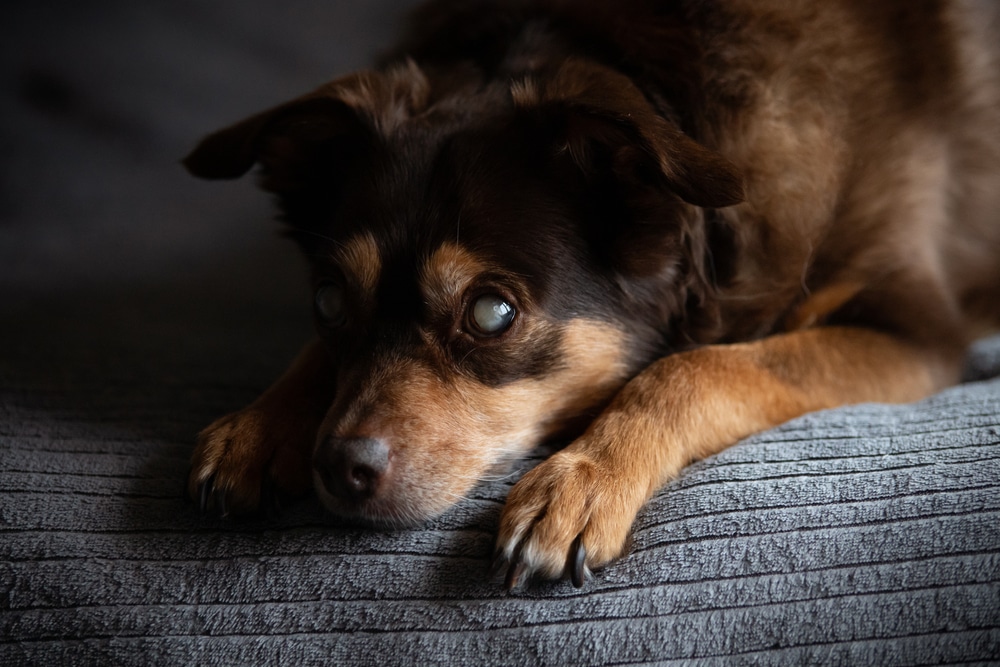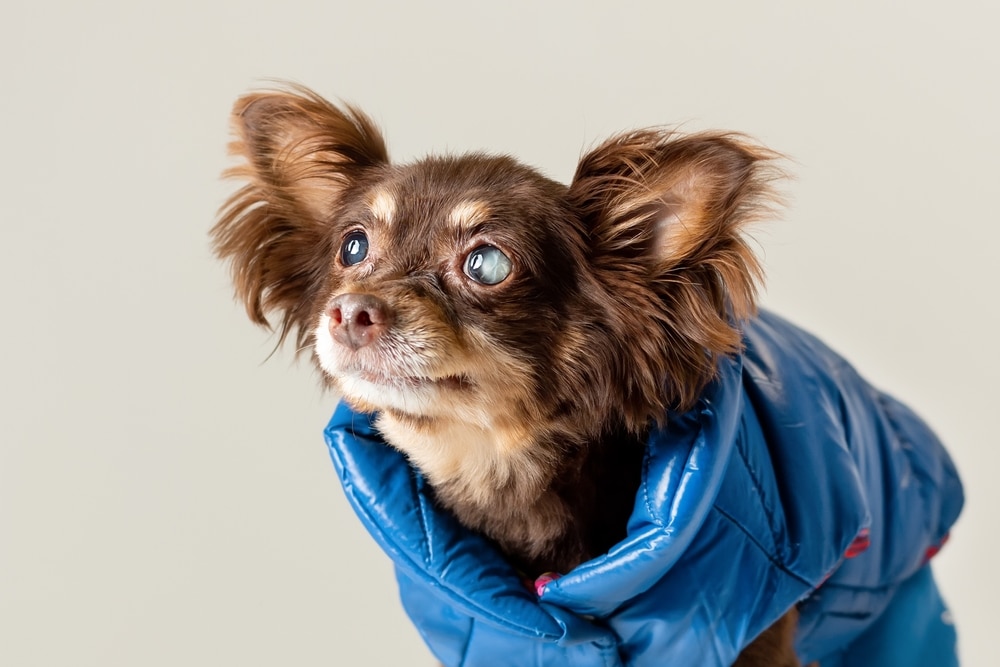Blind dogs have the same desire to play and express love as their sighted canine counterparts. So don’t think that caring for them is any different. Yet what steps can one take to ensure a blind dog has everything it needs? In other words, how do you take care of a blind dog?
You can take care of your blind dog by keeping the furniture in one place. Speak clearly and often. Doing this will help it recognize your voice and feel more comfortable at home. Place a radio in an area where it spends most of its time so that familiar sounds can guide it around the house. You could even get a collar or tag made with “blind” written on it! Additionally, invest in noisy toys to give off auditory clues and scent work activities to further assist your dog.
Table of Contents
How Long Does It Take For A Blind Dog To Adjust?
Losing sight is a sudden and jarring experience for dogs, but it doesn’t have to be a permanent one. With proper training and guidance, your dog can adjust to its new condition within six to eight weeks!
After the adjustment period of six to eight weeks, most blind dogs will resume their “normal” temperament as if nothing happened in just half a year’s time.
During this adjustment period, be sure to offer plenty of love and reassurance so that your dog feels safe. A dark-colored harness with a handle might also help it get around better as it learns its way around the house or yard.
Additionally, create a path of textures (carpet, rugs, etc.) that will provide tactile guidance in lieu of its sight.
Do Blind Dogs Need More Attention?
Blind dogs may need more attention than their sighted counterparts. As your dog learns to navigate its world without vision, it will need extra reassurance and guidance from you.
Blind dogs are capable of living long and fulfilling lives, but they require tailored training and behavior modification. Regardless of if their blindness is congenital or a later-in-life impairment, these dogs can adapt to protocols designed for dogs with regular vision. With the proper attention to guidance, blind dogs can thrive!
Steps To Take To Take Care Of A Blind Dog

Blind dogs require some special attention, but with the right care, they can still have a full and happy life. Here are some steps you can take for proper caring of a blind dog.
Create A Safe Space For Your Blind Dog
Make sure to block off any potential hazards, such as stairs or furniture, that could easily trip up a blind pup. Additionally, use textured mats and rugs to make it easier for them to navigate the house.
Your blind dog will need a safe spot to retreat, sleep, and play without feeling overwhelmed. Keep the furniture in one place to keep your dog from bumping into things. Create pathways of texture (carpet, rugs) that provide tactile guidance for your dog.
Speak Clearly And Often
Speak clearly and often to your blind dog. This will help it recognize and trust your voice, making it feel at home more easily. You can also use verbal triggers such as “left” and “right” to guide them around the house.
Make sure to use the same commands consistently, as well as verbal cues that your dog can recognize when entering and exiting different rooms. This will help it build up familiarity with its environment.
Place A Radio In An Area Where It Lives
For your blind pup, the soothing melodies of the radio can give it a sense of reassurance and help it to be familiar with its surroundings. Position it in an area where it typically spends most of its days, whether that is its bedroom or living room; this will ease any feelings of anxiousness when introducing new places.
Invest In Noisy Toys To Give Off Auditory Clues
Noisy toys can be incredibly helpful for blind dogs; they provide auditory clues as to where they are in the house. Squeaky balls and Kongs are all great options that can help keep a blind dog entertained.
You can also use scent work activities like searching for treats or exploring different scents to further assist them.
Use Scent Work Activities
Scent work activities are a fun way to stimulate your dog’s sense of smell, which is even more heightened after vision loss. You can use food-scented items and have your dog search for them in different places around the house or yard. This will help keep it intellectually stimulated and encourage it to rely more on its other senses.
Provide Supportive Accessories
There are several supportive accessories on the market that can help keep your blind dog safe and comfortable. Consider investing in a harness with a handle, which will give you better control if you need to guide your dog toward new places or have them walk next to you.
You may want to look into specialized collars and leashes for visually impaired dogs, as well as items such as reflective vests or LED lights for nighttime walks.
Monitor The Environment For Potential Hazards
To begin with, keep the room layout unchanged so your blind pup can familiarize itself with its environment. This will allow it to explore comfortably without feeling anxious about hurting.
With a little patience and experimentation, eventually, it’ll remember where everything is located and how to avoid any potential accidents.
In Conclusion: How To Take Care Of A Blind Dog?
Taking care of a blind dog requires some extra attention. Create a safe environment by blocking off potential hazards and using textured rugs or mats to help with navigation. Talk to your pup often so it can recognize your voice, and consider investing in noisy toys, scent activities, and accessories to keep it engaged. Monitor its environment and keep the layout consistent to help it become familiar with its surroundings. With these tips, your blind pup can live a full and happy life.
So, are you planning on getting a blind dog, or do you have one already? How’s it going? Let us know in the comments below!
